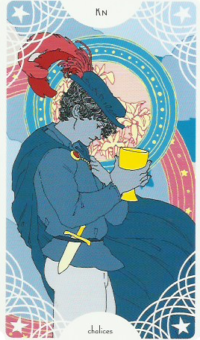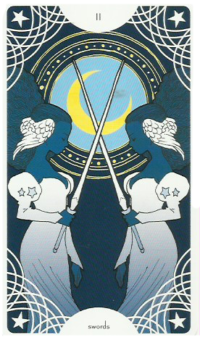Activities for Empathy: 5 Easy Ways to Develop It
Empathy is our natural capacity to share, understand, and respond with care to the affective state of others, according to neuroscientist Jean Decety in his book, Empathy: From Bench to Bedside*. Seems like a tough skill to possess, but good news, it can be easily learned. These are activities for empathy that will help you develop it, without you actually working on it. Sounds vague? Just hop on and start pushing bad karma away!
1. Have a pet dog

It doesn’t matter if you adopt or shop, for as long as you’ll treat them as your children–give them time to play, and care about their physical and mental well-being. I don’t have a kid, but my dog has taught me how to read emotions.
The best part of having a dog for a pet is that they don’t communicate in words. And just like children, you will intuitively know when they are hungry, angry, or they need to play. Learning to communicate non-verbally–just feeling them–is the best sign that you’re learning empathy.
2. Observe
Try street photography or watch people as they do their thing. Most of the empathetic people I know (including myself) strengthened this skill by observing how people act in common situations. I mentioned street photography because you meet random (and a lot of) people in the streets in one go. And there’s a lot of waiting involved. I’m not saying that you should master being a wallflower and wait, but the less you bring yourself into the limelight, the more you can master reading nonverbal cues.

3. Mirroring
In a conversation, repeat what the other is saying and rephrase it in a form of a question. Do this trick if active listening is downright difficult for you. If they tell you “I don’t like being told what to do,” then say, “You don’t like being told what to do?” And then comes the magic: they will expound what they have just said and will tell you more.
You don’t have to probe more to know where people are coming from. If you are not comfortable blurting out the phrase “I feel you” to show some empathy, then mirror them. If you are tempted to argue and get deeper, that brings me to the next activity: avoid the WHY.
4. Say what
Most of the time, the “why” part of any conversation brings defensiveness out of people. That’s because your parents have mentioned this word a gazillion times when you were growing up. And as an adult, you have already played a scenario in your mind, or have jumped to conclusions about what the other is up to. It may sound counter-intuitive to talk first before you think, but I say, we will just use our talking instinct to work to our advantage.
Instead of saying your opinion about another person’s statement, ask first. This is where mirroring will be handy, and if you can’t help but say something that’s on your mind or demand an explanation, you say it with: “What makes it important to…?” or “What would happen if…?” Mirroring and asking first will buy you time before your analytical self can lash out at someone.
5. Be curious like a child

Ask a stupid question. Pretend that you don’t know a thing. Be curious as a cat. That curiosity opens worlds, if not opportunities. And these opportunities are not just about you, but also about the other. Empathy is always about the other
Know that there are multiple perspectives in a single situation, and there is no right or wrong in the world. It’s your thinking (and society) that makes it so. Seeing the world in a child’s eyes harnesses not only your empathy but also your openness to world-views. So, avoid “wouldn’t that….” in conversations and try it like in activities #3 or #4.
Final Thoughts
You don’t have to like people to understand them. Empathy is all about making it all about the other, which enriches your knowledge of the human condition. And as they put it, it’s being in another’s shoes. It’s not about being able to psych people, but to connect with them on a soulful level, if not seeing the world from another perspective. The more you see other people’s perspectives, the better you will learn to navigate the harsh realities of life.
People want to be heard more than they would want to hear your opinion. When you tune in to others more, you become a part of that revolution that makes the world a kinder place.
I hope you enjoyed that article, and let me know what you think! Feel free to subscribe to read more spiritual shit (I mean tips), or receive guidance through tarot or love oracle readings.
*Amazon affiliate link. See blog footer for my full affiliate disclosure.
Try Your Own 3-card Spread
Read More Spiritual Hacks
- Top Crystals to Attract Love and Romance
 If you’re looking to attract love into your life—whether it’s self-love, romance, or deep emotional healing—crystals are powerful allies. These beautiful gemstones vibrate with energies that can open your heart, clear emotional blocks, and invite Read more
If you’re looking to attract love into your life—whether it’s self-love, romance, or deep emotional healing—crystals are powerful allies. These beautiful gemstones vibrate with energies that can open your heart, clear emotional blocks, and invite Read more - 5 Crystals for Mental Health During Libra Season (And How to Know If It’s Fake)
 Libra season, ruled by Venus, encourages balance, harmony, and a sense of peace in all aspects of life—especially when it comes to mental health. From September 23 to October 22, we are guided to find Read more
Libra season, ruled by Venus, encourages balance, harmony, and a sense of peace in all aspects of life—especially when it comes to mental health. From September 23 to October 22, we are guided to find Read more - Soul Gifts, Soulmates, and Signs of Being an Old Soul: Takeaways from Letters to a Starseed
 Rebecca Campbell’s Starseed oracle deck is a good addition to one’s arsenal because it offers an uncommon perspective on soul-work. It also offers a deeper understanding of one’s own consciousness evolution. However, words from Letters Read more
Rebecca Campbell’s Starseed oracle deck is a good addition to one’s arsenal because it offers an uncommon perspective on soul-work. It also offers a deeper understanding of one’s own consciousness evolution. However, words from Letters Read more - Unlock Your Inner Power Through Stones
 The seat of your inner power is in your core, where the energy center called the solar plexus chakra rests. You connect with this chakra alongside your intuition (third eye chakra) to make the right decisions and Read more
The seat of your inner power is in your core, where the energy center called the solar plexus chakra rests. You connect with this chakra alongside your intuition (third eye chakra) to make the right decisions and Read more - Yoga Tips for Beginners at Home: 9 Things You Need to Know
 So you’ve decided to try yoga. New to it? No problem. Here are tips for yoga beginners at home that you should know before you hop on to your mat. And no, your mat need Read more
So you’ve decided to try yoga. New to it? No problem. Here are tips for yoga beginners at home that you should know before you hop on to your mat. And no, your mat need Read more - How to Make Crystal Healing Elixirs in 1 Minute
 Crystal healing elixirs are powerful potions for therapeutic or healing purposes. These are potent essences from both natural sources: crystals and plants. While there are widely available crystal healing elixirs out there, it’s either they Read more
Crystal healing elixirs are powerful potions for therapeutic or healing purposes. These are potent essences from both natural sources: crystals and plants. While there are widely available crystal healing elixirs out there, it’s either they Read more







0 Comments